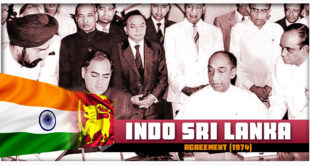- In an influential essay written more than two decades ago, Professor Hilary Charlesworth, who is now a judge at the International Court of Justice, described international law as “a discipline of crisis”. Not much has changed since then. Just when the world was recovering from the pain induced by COVID-19, Russia’s invasion of Ukraine last year once again highlighted the ‘crisis’ dimension of international law.
- One of the underlying bases of the post-world war international legal order has been to explicitly outlaw war through the adoption of the United Nations (UN) Charter.
- While the UN Charter has succeeded in ensuring that the world does not fight another world war, it has failed in stopping inter-state wars.
- This year is going to further test the limits of international law, not just because of Russia’s ongoing illegal war, but also due to several other factors that will play out in the next 12 months and beyond.
The geo-economic challenge
- The world post-World War II was a bipolar one with great power competition between a ‘capitalist’ America and a ‘communist’ Soviet Union.
- The end of the Cold War led to the disintegration of the Soviet Union and the collapse of communism.
- This ‘unipolar’ moment gave a leg-up to multilateralism and led to three decades of what C. Raja Mohan calls “relative harmony” among the major powers.
- However, even during this period, the North Atlantic Treaty Organization bombed Kosovo and the Western forces invaded Iraq in complete disregard to the UN Charter.
- As Ralph Wilde argues, these U.S.-led military actions did not attract as vociferous an international response as the Russian invasion of Ukraine did.
- The ‘relative harmony’ phase saw the spread of democracy, greater acceptance of universal human rights, and a global consensus for maintaining international rule of law with multilateral institutions and independent international courts acting as referees.
- However, these universal values are under threat as we have entered a multipolar world involving the securitisation of international law.
- The major powers are at each other’s throats. Today international law faces a new ground reality — the dwindling of the ‘liberal’ and ‘capitalist’ West and the rise of an ‘autocratic’ China and ‘expansionist’ Russia.
- The meteoric rise of China means that Beijing is now flexing its muscles, including by weaponising international law. China views law as an instrument in the service of the state.
- This is diametrically opposed to the rule of law theory in liberal democracies where the law’s function is to constrain unbridled state power.
- The Westphalian notion of international law that ostensibly championed international rule of law and territorial integrity of states is now pitted against Chinese and Russian versions that believe in gaming international law for national interests.
- Under the Chinese and Russian versions, the territorial integrity of nations and the sovereignty of states doesn’t quite matter.
- For instance, the Russian approach towards international law believes that the basis of international law is not universal but cultural and civilisational distinctness.
- The Russian vision of international law, in complete violation of the UN Charter, distinguishes between countries that are truly sovereign and countries that possess nominal or limited sovereignty, such as Ukraine.
- As this clash between different visions of international law sharpens in 2023, it will push international law into a deeper crisis.
International economic lawlessness
- An important fallout of the rise of the geo-economic order is the concomitant spread of economic protectionism.
- The rise of China has set the cat among the pigeons in the U.S., which is desperate to ensure its continued hegemony.
- Washington is fast backtracking on the neoliberal consensus of interdependence and non-discrimination in international economic law that it laboriously built in the last three decades.
- The recent adoption of the Inflation Reduction Act in the U.S., which aims to transition to clean energy by providing massive industrial subsidies to domestic American companies at the cost of imports and foreign companies, is a case in point.
- Likewise, the U.S. has vehemently rejected the recent World Trade Organization (WTO) panel reports that held the U.S.’s protectionist industrial policies masquerading as national security objectives illegal.
- The U.S. has also strangled the WTO’s effective dispute settlement mechanism by relentlessly blocking the appointment of the Appellate Body members. All these challenges are only going to become ominous in 2023 leading to greater lawlessness in the world economy.
The populist challenge
- Although leaders such as Donald Trump and Jair Bolsonaro have demitted office, international law in 2023 will continue to face challenges from populist and ethno-nationalist regimes in several countries such as Hungary, Turkey, Poland, and Israel.
- Populists attack the legitimacy of international law and refer to it as foreign law, which is inimical to their national interests. International law, in the populist scheme of things, is often reduced to a mere law of coordination.
- This law of coordination is not aimed at international cooperation to develop and espouse common global values, but only to ensure a minimal relationship between countries with common ideational moorings.
- Populists also attack international institutions and international courts for thwarting them from pursuing the interests of the ‘pure’ people they claim to represent. They enact domestic laws to protect the ethnic identity of the ‘pure’ people even if these laws undermine international law.
SOURCE: THE HINDU, THE ECONOMIC TIMES, PIB
 Chinmaya IAS Academy – Current Affairs Chinmaya IAS Academy – Current Affairs
Chinmaya IAS Academy – Current Affairs Chinmaya IAS Academy – Current Affairs



